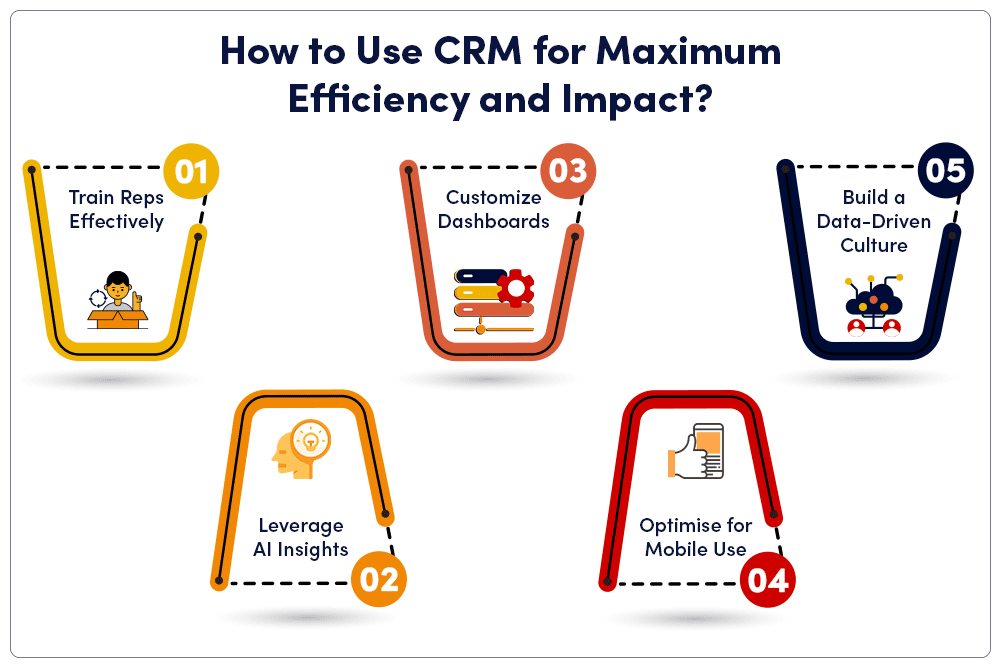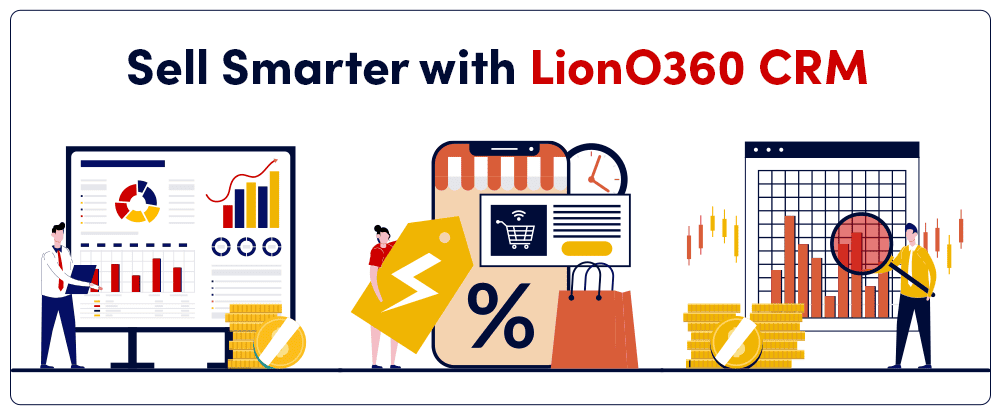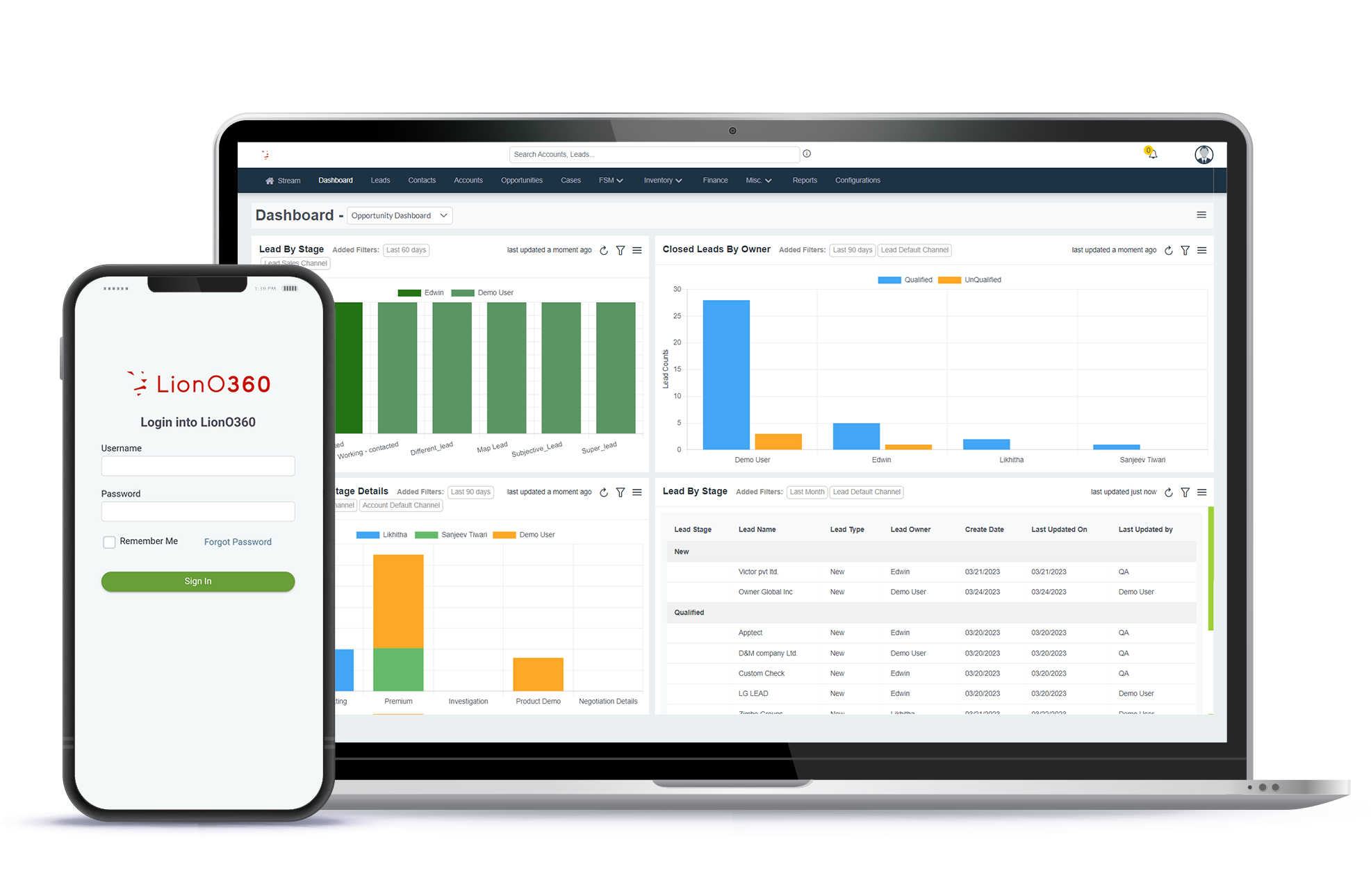
In both B2B and B2C environments, CRM systems are becoming an essential tool for sales teams looking to manage pipelines, work productively, and ultimately drive revenue.
Many companies invest thousands of dollars in a system that meets all their needs and expectations, only to find that their adoption rates are low, their data is still siloed, and their return on investment is marginal.
The secret to enhancing the efficiency of your CRM is to ensure that your sales goals are aligned with the activities done in the CRM, that you have automated non-salable processes, and that you have created a culture of using data to drive decisions.
While CRM is a productivity enabler for sales, its true value can only be realized when efficiency is maximized, both strategically and through technology.
The sales team should focus on how the team uses it. That will make CRM more useful for the sales team. Reduce the data entry needed, use automation, and connect the CRM with other tools. Encourage a team culture that values data and sales by providing regular training. Also, you can use AI to create helpful recommendations. In results, the sales teams can turn the CRM from a passive system into an active tool for generating revenue.
If organizations continue to implement and use CRM in efficient ways, you may find yourself standing out as a market leader, rather than a follower.
This blog tells practical, strategic, and technological ways for sales teams to maximize their CRM efficiency. Also, it enables stronger customer relationships, shortens sales cycles, and improves accuracy systematically.
What is Sales CRM?
A sales CRM is designed to focus on sales pipelines. A software that is used to enhance customer relationships and manage sales records. It also classifies customer interaction, manages contact information, and streamlines the sales pipeline. Here are the key features of LionO360 CRM that work in favor of your customers to drive sales processes:
- Lead Management
- Account Management
- Opportunity Management
- Sales Quota & Forecasting
- Communication Tools
10 Ways Sales Team Can Enhance CRM Efficiency

1. Align CRM Usage with Sales Strategy
Align your CRM with your sales strategy to improve its efficiency. Many teams use CRM just as a data store instead of for daily sales. Start by defining your sales goals, like increasing deal size or entering new markets. Once goals are clear, set up your CRM’s pipeline, custom fields, dashboards, and workflows accordingly.
2. Simplify Data Entry and Improve Data Quality
CRM inefficiency usually stems from poor data quality and cumbersome data entry practices. Sales agents are naturally focused on closing deals rather than spending hours logging. Therefore, it is required to simplify data entry.
Use automated data capture, integrate your CRM with emails, calendars, calling software, LinkedIn, and website forms. It will automatically pull in contact details, conversation history, and meeting notes. Define mandatory fields smartly. Avoid overloading reps with unnecessary inputs. Clean your data periodically to eliminate duplicates and outdated contacts, ensuring your CRM remains accurate and actionable for targeted outreach, reporting, and forecasting.
3. Leverage CRM Automation
Modern CRMs offer powerful automation capabilities, yet many teams are underutilizing them. To maximize CRM efficiency:
Automate follow-up reminders based on lead scores or deal stages.
Set up email sequences and drip campaigns triggered by contact behavior.
Using workflow rules to assign leads to appropriate sales reps based on territory, industry, or product interest automatically.
Automated approval processes for discounts and proposals.
4. Train Sales Teams for Effective CRM Utilization
CRM adoption is a change in culture as much as it is a change in technology. Training should happen for one major reason: so that your team knows how to use CRM as a way to increase productivity, not to be micromanaged. Train your reps in a scenario training format on how to update deals, add notes, schedule tasks, and report all, while keeping it as close to their daily tasks. Have them download the CRM for mobile phones to send updates on deal progress throughout the day. Make sure you have your sales leaders introduce the strategic value of their updates in training when you are conducting pipeline reviews or coaching their sales reps, to tie the CRM into achieving revenue targets. Not only do continual training sessions on engaging on-platform updates keep your team updated with new features or integrations, but they also keep them engaged and invested.
5. Create Custom Dashboards and Reports
Generic CRM dashboards rarely provide the nuanced insights that sales teams need. Customize dashboards to display KPIs directly aligned with individual, team, and organizational goals. For instance, create dashboards showing:
- Pipeline coverage ratio (pipeline value/quota)
- Deal velocity by stage
- Win rates by product/service category
- Top accounts by potential revenue
- Activity vs. outcome metrics (calls, meetings, proposals vs. closed-won deals)
Real-time dashboards empower reps to prioritize deals effectively, while managers can identify bottlenecks and coach accordingly. Additionally, automated scheduled reports can keep stakeholders updated on performance without manual compilation, saving hours of admin time weekly.
6. Integrate CRM with Other Business Tools
CRM efficiency doubled when integrated with marketing automation tools, customer support systems, proposal software, and ERP solutions. For example, integrating marketing automation platforms enables seamless lead nurturing and scoring, enriching CRM records with behavioral data for sales prioritization. Similarly, integrating customer support software ensures sales reps have complete visibility into customer issues before pitching upsells or renewals, leading to more empathetic and strategic conversations.
7. Optimize CRM for Mobility
Nowadays, sales teams operate in hybrid environments. It means they are working from the office, at home, and on the move. Ensure your CRM is fully optimized for mobile usage. Enable reps to:
- Update deal stages post-meeting.
- Scan business cards to create contacts instantly.
- Access real-time customer data before on-site visits.
- Log calls, voice notes, and meeting summaries through mobile dictation.
A mobile-optimized CRM removes time lag in data entry, improves pipeline visibility for managers, and enables reps to act quickly on opportunities wherever they are.
8. Utilize AI-Powered Insights and Predictive Analytics
CRMs are no longer just repositories of past interactions; AI and predictive analytics transform them into intelligent selling tools. Leverage features like:
- Predictive lead scoring to prioritize high-converting leads.
- Opportunity insights highlighting deals at risk based on inactivity or customer signals.
- Recommended next-best actions for each opportunity.
- Automated meeting summaries using AI transcription tools integrated within CRM.
These insights empower sales teams to focus on deals with maximum revenue impact, improve forecast accuracy, and tailor engagement strategies efficiently.
9. Foster a Data-Driven Culture
CRM efficiency is maximized when sales teams trust and rely on CRM data for decision-making. This requires a data-driven culture where managers consistently refer to CRM dashboards in team meetings, pipeline reviews, and performance discussions. Celebrate CRM usage milestones publicly to encourage adoption. For example, appreciate reps who maintain 100% deal data hygiene or use CRM automation innovatively. When salespeople see that CRM usage directly influences recognition, incentives, and success, it naturally becomes ingrained in their daily workflow.
10. Periodic CRM Performance Audits
Just as businesses review financial or operational performance, CRM usage should undergo periodic audits. Evaluate:
- Adoption rates by feature and user group.
- Data hygiene scores (duplicate rates, outdated contacts).
- ROI from CRM automation (time saved, speed-to-lead improvement).
- Integration effectiveness with other tools.
Based on insights, adjust workflows, provide refresher training, upgrade features, or reconfigure pipelines to keep CRM aligned with evolving business goals.
Role of LionO360 CRM in Maximum Sales Efficiency and Impact

From an organizational perspective, LionO360 CRM means measurable growth. By increasing the efficiency of your sales team, CRM shortens the time to close sales and positively improves the conversion ratios, driving the bottom line. Inclusively, it offers a 360-degree view of the pipeline and performance-based metrics to help them make fact-based decisions on how to scale faster and smarter.
In summary, LionO360 CRM provides sales teams with the tools to operate as strategic partners to the business organization, making it an integral tool for companies that are searching for sustainable success.
Frequently Asked Questions
What can sales teams do with CRM best practices to perform more efficiently?
Sales teams should ensure that their use of CRM is aligned with sales strategies (sales process), reduce data entry, automate repetitive processes, and integrate CRM with other applications used in the business. Training sales reps regularly and creating a data-centric culture are two CRM best practices for sales teams that will have a systematic effect on increasing adoption, productivity, and revenue.
How does CRM automation improve sales productivity?
CRM automation can improve sales productivity by automating follow-up activities, routing leads to sales reps using predetermined business rules, automating email sequences, and automating approvals. Automating these CRM optimizations means sales reps spend less time on administrative tasks, allowing them to spend more time building relationships with prospects and closing sales in the most effective way.
What is some advice for sales teams on how to implement CRM successfully?
When implementing CRM for sales, it is important to involve sales reps in decisions about the setup, customize records (workflows), so it mirrors what sales teams do every day, conduct scenario-based training where possible, and ensure there is options to access everything on mobile devices. Involve with a culture where CRM data becomes the medium that enables pipeline reviews and improved performance recognition will encourage long-term adoption and success.













